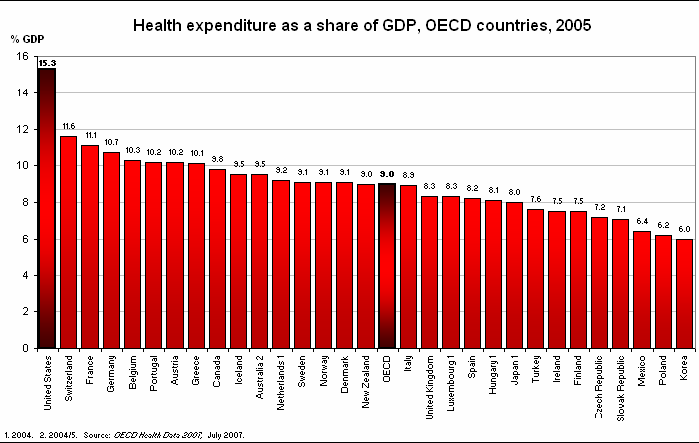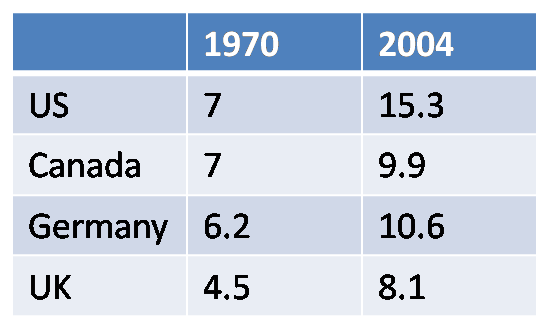akuma587 said:
fmc83 said:
TheRealMafoo said:
| vlad321 said:
For the Financial Fairness, yes we already addressed this. What's the point of having great healthcare if only a few people are able to pay for it? Or even worse, if they do get treated the poorer are only put under much greater strain under depth, causing long-term stress, and so on and so forth. Ultimately the poorer end up with debt, chronic stress, and overall they end up a lot worse situation than the rich after the treatment. It's a thoroughly valid statistic.
|
The problem is what you think "better" is. To me, when I see a country ranking based on healthcare, I expect someone getting treated in a country ranked 10th, to get better treatment then someone in a country ranked 20th.
Using that statistic to rank countries, means this is not the case.
|
By your logic, North Korea has one of the best health care systems, because Kim Jong-Il will certainly get better treatment then some (if not all) of the people in the Number 1 country on the list.
Won't happen though, because this list shows the average of the people living in one country.
|
Exactly. A theoretical healthcare system in which theoretical people receive treatment is totally meaningless. It is highly relevant to look at what actually happens.
|
Your both missing the point. let's put it another way.
Let's say you traveled the world, and ranked treatment yourself. You had a scale of 1 to 100 as what the best experience in a hospital was. Let's say you were to go to Costa Rica, and of all the hospitals in the world, you ranked them at a 20 and everyone in that country got the same healthcare.
Now you come to the US, and the worst treatment (someone with no health insurance) you ranked as a 40, and the best medical care, you ranked as a 90.
The worst person in the US got twice a good of healthcare then the Costa Rican people, but on that list, Costa Rica will get a higher score because they all got the same shitty care.
That's not how it should work in my opinion.



























































